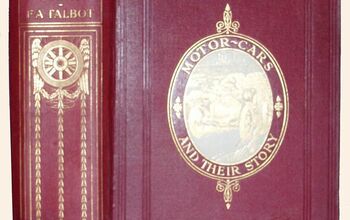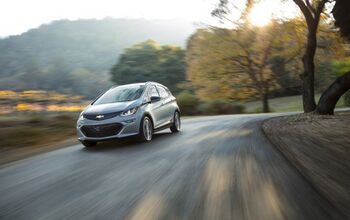Credit Where It Isn't Due
Credit is at the heart of the current auto crisis, a fact agreed to by all sides of the debate. But while the pro-bailout crowd wails about needing a 700 FICO score to get a car loan, the fact of the matter is that cheap credit allowed Detroit to create this problem in the first place. Mother Jones correctly points out that Detroit has been redlining the American auto market for years, by finding the easiest profits possible. And no, they’re not talking about SUVs. The thesis is that with car pricing easily available online, dealerships relied on financing offers to lure consumers into the store. Loans were loaded with extras, interest rates would be bumped for kickbacks, and upside-down trade-ins were rolled into the new loan which often stretched to six or seven year terms. These tactics, which MJ calls “endemic,” have left a US market where 85 percent of Americans with a car loan have negative equity. On average upside-down Americans owe $4,400 more than their car is worth. And all the while congress has played right along, from including a provision in the 2005 bankruptcy “reform” which forces filers to repay the entirety of a car loan, even if they owed substantially more than their car was worth, to engaging in fraud themselves. Now, as Rosemary Shahan of Consumers for Auto Reliability and Safety puts it “no matter how much money Congress throws at the automakers, it’s car buyers who will rescue them or not.” With 85 percent of American car owners looking at an average of $4,400 negative equity on their vehicles, Mother Jones is absolutely correct in assuming that the $17.4b bailout band-aid won’t bring back the business Detroit needs. Which proves that even when their main product was financing, the Detroit Three still just couldn’t get it right.
More by Edward Niedermeyer
Latest Car Reviews
Read moreLatest Product Reviews
Read moreRecent Comments
- Kwik_Shift_Pro4X Nice look, but too short.
- EBFlex Considering Ford assured us the fake lightning was profitable at under $40k, I’d imagine these new EVs will start at $20k.
- Fahrvergnugen cannot remember the last time i cared about a new bmw.
- Analoggrotto More useless articles.
- Spamvw Did clears to my '02 Jetta front markers in '02. Had to change the lamps to Amber. Looked a lot better on the grey wagon.I'm guessing smoked is illegal as it won't reflect anymore. But don't say anything about my E-codes, and I won't say anything about your smoked markers.


































Comments
Join the conversation
Engineering is about tradeoffs. Any given project can be optimized for a set of desired results at the expense of those parameters that are less important. When the optimizations chosen serve the business purpose, good things can happen. Since Apple has been mentioned, let's talk about the Apple II, the first PC that was really successful with business users. This was largely due to a combination of Visicalc and a cheap floppy disk drive. Visicalc was available for the TRS-80 and Commodore Pet as well, but Apple had a major advantage in that their floppy disk drive was half the price. This was a result of Wozniak's brilliant design. Everyone else used off-the-shelf disk-interface chips from Western Digital. Woz designed his own peripheral interfaces using the Apple II's CPU (a 6502) as the controller. This allowed Apple to radically undercut their competitors on pricing. The best word to describe the Apple II's design was elegant. Of course, Apple also serves up a lesson (one of many) in how to go wrong. The Apple 3 (Woz had almost nothing to do with this turkey) was an expensive, over-engineered disaster. Being designed to serve both the intended audience of business users and the legions of Apple II customer base as well, it failed at both. It almost killed the company. The point is that to reinforce what others have said about success being a combination of talents and skills. When all are working toward definable and reachable goals, most often set by leaders with vision, good things happen.
If you own a one month old car, especially a vehicle made by anybody but Honda or Toyota, you probably have several thousand dollars in negative equity unless you made a large down payment (that is, the car loses thousands of dollars the moment you drove it off the lot). Saying that the average person with a car loan has negative equity is a "duh" statement, IMHO.